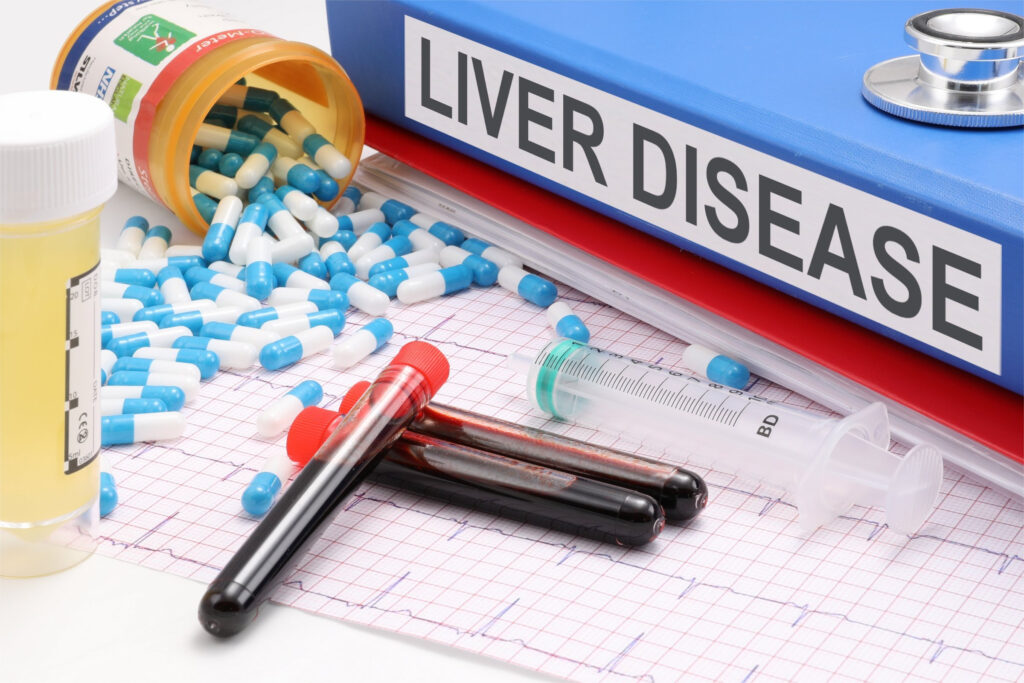Liver Disease Symptoms: Recognizing – Liver disease is a serious condition that affects millions of people worldwide. From mild cases to severe complications, understanding the symptoms of liver disease is crucial for early detection and effective treatment. In this article, we’ll explore the various symptoms of liver disease, ranging from common signs to more severe manifestations, along with the importance of timely diagnosis and preventive measures.
Introduction to Liver Disease

The liver, one of the largest organs in the human body, plays a vital role in metabolism, digestion, and detoxification. Liver disease encompasses a spectrum of disorders that disrupt its normal functioning, leading to a range of symptoms and health complications. Recognizing these symptoms early on can significantly impact prognosis and treatment outcomes.
Common Symptoms of Liver Disease
- Jaundice: One of the hallmark signs of liver disease is jaundice, characterized by yellowing of the skin and eyes due to elevated levels of bilirubin in the bloodstream.
- Abdominal Pain: Persistent pain or discomfort in the abdominal region, particularly in the upper right quadrant, may indicate liver inflammation or enlargement.
- Swelling: Liver disease can lead to fluid retention and swelling in the abdomen, legs, and ankles, known as ascites and edema, respectively.
Less Common Symptoms
- Fatigue: Chronic fatigue or weakness is a common yet often overlooked symptom of liver disease, attributed to decreased energy production and metabolic dysfunction.
- Nausea and Vomiting: Some individuals with liver disease may experience nausea, vomiting, or a general feeling of sickness, especially after meals.
- Loss of Appetite: Loss of appetite or aversion to certain foods can occur due to impaired digestion and nutrient absorption.
Severe Symptoms
- Confusion: In advanced stages of liver disease, cognitive impairment and confusion, known as hepatic encephalopathy, may develop due to the buildup of toxins in the bloodstream.
- Bleeding: Liver dysfunction can affect blood clotting mechanisms, leading to easy bruising, nosebleeds, or gastrointestinal bleeding.
- Swelling in the Legs: Chronic liver disease can cause portal hypertension, resulting in the accumulation of fluid in the legs and abdominal cavity, known as peripheral edema.
Diagnosis and Treatment Options
Diagnosing liver disease typically involves a combination of medical history evaluation, physical examination, and diagnostic tests such as blood tests, imaging studies, and liver biopsy. Treatment options vary depending on the underlying cause and severity of the condition but may include medications, dietary modifications, and lifestyle changes.
Prevention of Liver Disease
Prevention plays a crucial role in reducing the risk of liver disease and its associated complications. Adopting a healthy lifestyle, including a balanced diet, regular exercise, and limited alcohol consumption, can help maintain liver health and prevent the onset of liver-related conditions.
Conclusion
Recognizing the symptoms of liver disease is essential for early intervention and improved outcomes. From jaundice and abdominal pain to confusion and swelling, understanding the signs of liver dysfunction can facilitate timely diagnosis and appropriate treatment. By prioritizing preventive measures and seeking medical attention promptly, individuals can safeguard their liver health and overall well-being.
FAQs (Frequently Asked Questions)
- How do I know if I have liver disease?
- Symptoms such as jaundice, abdominal pain, and fatigue may indicate liver dysfunction. Consult a healthcare professional for proper evaluation and diagnosis.
- Can liver disease be cured?
- The prognosis depends on the underlying cause and severity of the condition. While some cases of liver disease can be managed with treatment, other may require ongoing care and monitoring.
- What lifestyle changes can help prevent liver disease?
- Maintaining a healthy diet, exercising regularly, and avoiding excessive alcohol intake can promote liver health and reduce the risk of liver disease.
- Are there any warning signs of liver disease that shouldn’t be ignored?
- Symptoms such as confusion, persistent abdominal pain, and unexplained weight loss should prompt immediate medical attention, as they may indicate advanced liver disease or complications.
- How often should I get screened for liver disease?
- Individuals with risk factors such as a history of alcohol abuse, viral hepatitis, or family history of liver disease should undergo regular screenings as recommended by their healthcare provider.



